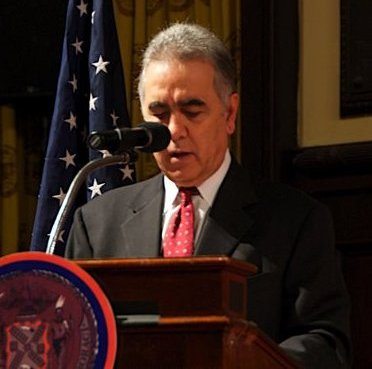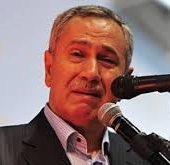
Last week, I described the terms of the $1.4 million contract signed by the Gephardt Group, the lobbying firm of former House Majority Leader Dick Gephardt, to promote Turkey’s interests in Washington.
Realizing that its relationship with the United States has seriously deteriorated, the Turkish government has been pouring millions of dollars into the coffers of several U.S. firms, hoping to improve its image by whitewashing the dark stains of its dictatorial regime. For that purpose, Ankara signed a contract on May 12, 2014 with former Turkish national swimming champion Huma Gruaz and her Chicago-based public relations firm Alpaytac, Inc., for $1,420,000 a year. Oddly enough, instead of making monthly payments, the Turkish government gave Alpaytac $1 million up front upon signing the agreement, and paid the balance of $420,000 in the first three months. Alpaytac thus replaced the public relations firm of Fleishman-Hillard which received from the Turkish Embassy $779,805 for the six-month period from Nov. 1, 2013 to April 30, 2014, at which time its contract was terminated.
In addition, Ankara benefits from the activities of Turkish Coalition of America (TCA) which spent over $1 million to sponsor 170 congressional trips to Turkey since 2000. TCA was founded in 2007 by Massachusetts microchip millionaire Yalcin Ayasli who has donated close to $140,000 in the past 18 months to several pro-Turkish members of Congress, according to Al-Monitor.
Most people are unaware that pursuant to the Foreign Agents Registration Act, American firms representing foreign clients are required to report to the U.S. Justice Department their day-to-day activities every six months.
Alpaytac’s six-month report is not yet due. However, we would like to present excerpts from the detailed files the Gephardt Group and its subcontractors — Greenberg Traurig, Lydia Borland, Brian Forni, and Dickstein Shapiro — submitted to the Justice Department regarding their specific activities on behalf of Turkey from August 1, 2013 to January 31, 2014:
— On Sept. 19, 2013, forwarded a letter from Turkish Parliament Speaker Cemil Cicek to Vice President Joe Biden and Sen. Patrick Leahy.
— Sent emails to Representatives Castro, Cohen, Connolly, Deutch, Esty, Foxx, Frankel, Gabbard, Kennedy, Schneider, Wagner, and Whitfield; and Sen. Murphy regarding the upcoming visit of Turkey’s former Foreign Minister Ahmet Davutoglu; contacts were also established with several other members of Congress to discuss Syria, Iran sanctions, Hamas, and Missile Defense.
— Dick Gephardt reported making campaign contributions from Sept. 24 to Dec. 12, 2013 to: Representatives Alcee Hastings ($1,000), Barbara Lee ($1,000), Marjorie Margolies ($1,000), Richard Neal ($1,250), Brad Schneider ($500), Debbie Wasserman-Schultz ($1,500), Marc Veasey ($1,000), and Henry Waxman ($1,000); and Senators Dick Durbin ($2,500), Mary Landrieu ($1,000), Claire McCaskill ($1,000), Mark Pryor ($1,500), and Ron Wyden ($2,500).
— Gephardt Group employees contributed to Senators Dick Durbin ($500) and Jeanne Shaheen ($1,500); and Representatives Steve Cohen ($500), Colleen Hanabusa ($1,250), Jim Moran ($500), Brad Schneider ($500), and Cong. Henry Waxman ($500).
— Employees of Gephardt Group subcontractor Dickstein Shapiro LLC contacted Ben Branch, Legislative Director to Cong. Gregory Meeks, “regarding legislation focused on Turkish regional issues.” On behalf of Dickstein Shapiro, former House Speaker Dennis Hastert met with Turkish Ambassador Namik Tan and Sen. Ron Johnson “regarding U.S.-Turkey relations.”
— Other Dickstein Shapiro employees contacted the offices of Representatives George Holding, Eddie Bernice Johnson, Sheila Jackson Lee, Ileana Ros-Lehtinen, Gregory Meeks, Chellie Pingree, Robert Pittenger, Dana Rohrabacher, Ed Royce, and Ed Whitfield; and Senators John Boozman, Ron Johnson, Rand Paul, and Roger Wicker to discuss Turkish regional issues, Cyprus, Travel to Turkey, and U.S.-Turkey relations.
— Dickstein Shapiro employees contributed over $60,000 to the political campaigns of congressional candidates from July 20 to Dec. 19, 2013, including: Senators Lamar Alexander ($2,500), Kay Hagan ($9,000), Amy Klobuchar ($2,000), Mitch McConnell ($2,500), Mark Pryor ($2,500), and Tim Scott ($1,000), and Representatives Sanford Bishop ($2,500), Emanuel Cleaver ($1,500), Rick Crawford ($2,500), Steve Daines ($2,500), John Dingell ($1,000), Bill Huizenga ($2,500), Eddie Bernice Johnson ($1,000), Adam Kinzinger ($2,500), Mike McIntyre ($5,000), Buck McKeon ($1,500), Dutch Ruppersberger ($2,500), and Ed Whitfield ($2,500).
Since the lobbying firms hired by Turkey are obligated by law to report their detailed activities, it is important to check regularly their Justice Department filings in order to find out who are they contacting in Congress, for what purpose, and how much are they contributing to their political campaigns?



